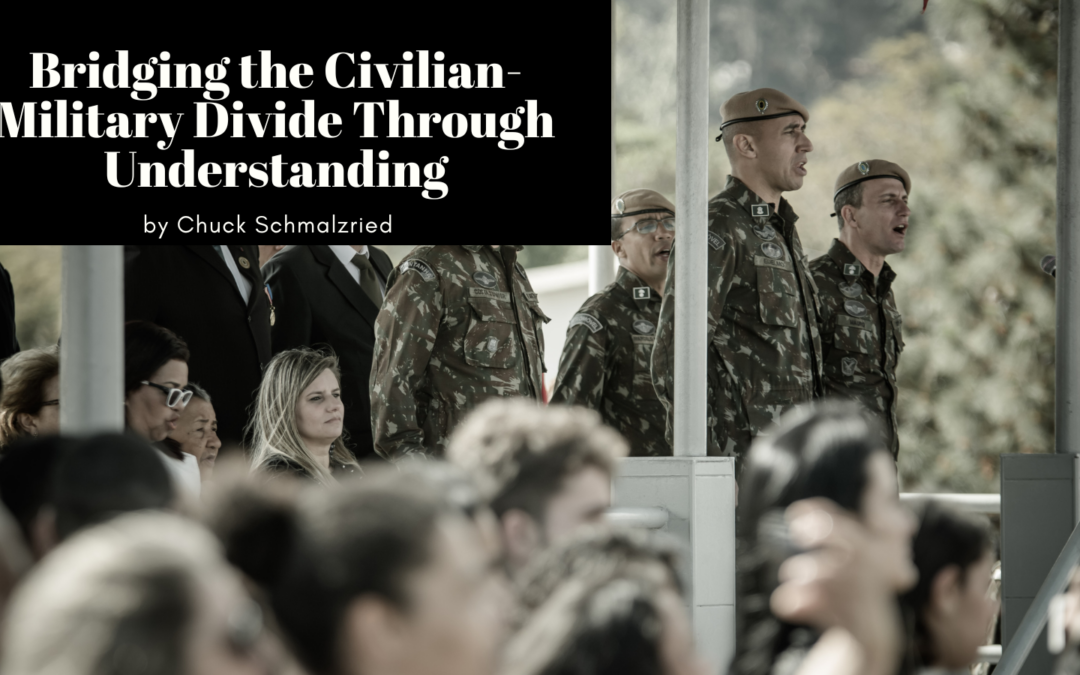The civilian-military divide, an inherent gap in experiences and perspectives between those who have served in the military and those who have not, underscores the need for intentional efforts to build understanding and unity within communities. Bridging this gap is essential for fostering a sense of appreciation, empathy, and connection between civilians and veterans. Here are key strategies to bridge the civilian-military divide by promoting understanding:
Open and Honest Dialogues: Initiating open conversations is the cornerstone of building understanding. Creating platforms for veterans and civilians to share their experiences, challenges, and aspirations can break preconceived notions and foster empathy.
Mutual Engagement in Community Projects: Facilitating partnerships between veterans and civilians in community projects can create shared experiences. Whether it’s a local clean-up initiative or a collaborative event, working side by side helps dismantle stereotypes and builds a sense of camaraderie.
Educational Initiatives: Implementing educational programs that provide civilians with insights into military life is crucial. Workshops, seminars, and online resources can help civilians understand the sacrifices, values, and unique challenges veterans face.
Storytelling Platforms: Creating platforms for veterans to share their stories is a powerful way to connect with civilians on a human level. Through podcasts, blogs, or public speaking engagements, veterans can communicate their experiences, fostering understanding and empathy.
Cultural Exchange Events: Organizing events that allow civilians to participate in military-themed activities and veterans to engage in civilian-focused events promotes a mutual exchange of perspectives. These cultural exchanges help break down barriers and establish common ground.
Mentorship Programs: Establishing mentorship programs where veterans mentor civilians and vice versa promotes mutual understanding. Sharing skills, experiences, and guidance builds bridges and breaks down the perceived divide between the two groups.
Military Appreciation Initiatives: Community-wide efforts to appreciate and acknowledge the military’s contributions are essential. Parades, events, and designated days for recognition create an atmosphere of gratitude, fostering a sense of unity.
Joint Community Service Projects: Engaging veterans and civilians in community service projects creates a shared commitment to giving back. This collaborative effort fosters a sense of unity, breaking down barriers and building connections.
Workplace Inclusivity: Promoting inclusivity in workplaces ensures that the skills and experiences of veterans are valued. Creating environments that recognize and appreciate diverse backgrounds helps bridge the gap and creates cohesive work teams.
